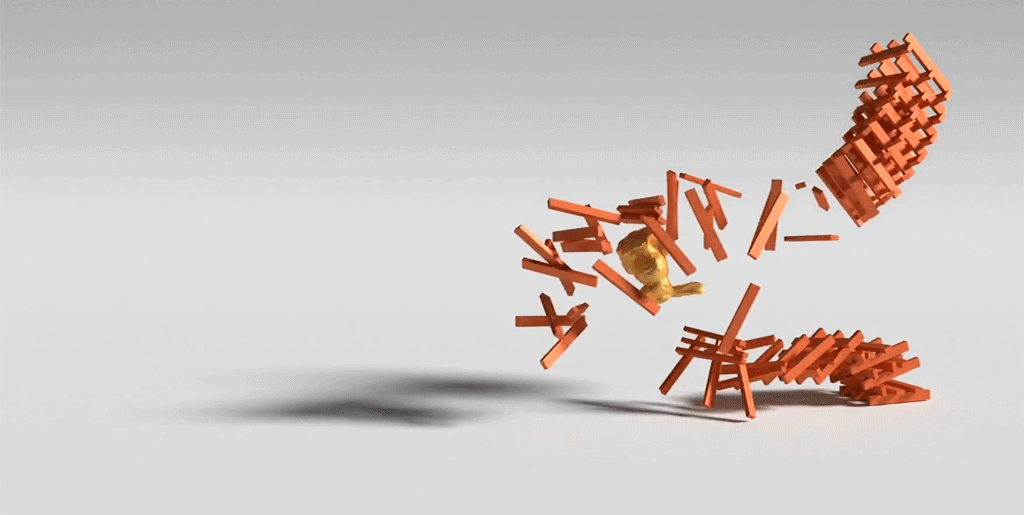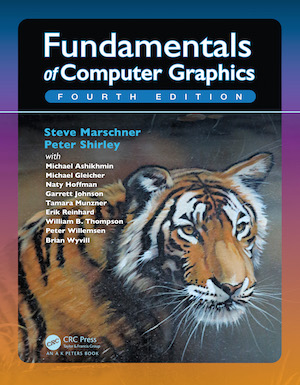Prof. David I.W. Levin
diwlevin@cs.toronto.edu
+1 416-978-2052
TA Email Address: csc418tas@cs.toronto.edu (all assignment/marking questions)
Office Hours: Tuesday/Wednesday 5-6pm in BA5268
LEC0101 Wednesdays 15:00-17:00 in GB221
LEC2001 Wednesdays 15:00-17:00 in GB221
LEC0201 Tuesdays 15:00-17:00 in GB244
LEC2201 Tuesdays 15:00-17:00 in GB244
NO TUTORIAL ON JANUARY 6
LEC0101 Monday 15:00-16:00 in GB221
LEC2001 Monday 15:00-16:00 in GB221
LEC0201 Monday 15:00-16:00 in GB244
LEC2201 Monday 15:00-16:00 in GB244
-
Bulletin Board Coming Soon
-
MarkUs Coming Soon
This course introduces the basic concepts and algorithms of computer graphics. It covers the basic methods needed to model and render 3D objects, including much of the following: graphics displays, basic optics, line drawing, affine and perspective transformations, windows and viewports, clipping, visibility, illumination and reflectance models, radiometry, energy transfer models, parametric representations, curves and surfaces, texture mapping, graphics hardware, ray tracing, graphics toolkits, animation systems.
Prerequisites: C/C++ Programming, Linear Algebra, Calculus, Numerical Methods (course codes).
The student is expected to read background material on the hardware and local software, and should be comfortable with elementary linear algebra, geometry, and vector calculus. It is also assumed that the student is comfortable programming in basic C++.
(Strongly) Recommended preparation: Multivariable Calculus
This class involves required reading from:
Fundamentals of Computer Graphics, Fourth Edition, Steve Marschner, Peter Shirley, et al. 2015.
Digital e-book are available at CRC Press.
| Week | Topic / Event |
|---|---|
| 1 | Introduction, Assignment 1 (Raster Images) due 17/01 |
| 2 | Lecture 2, Assignment 2 (Ray Casting) due 24/01 |
| 3 | Lecture 3, Assignment 3 (Ray Tracing) due 31/01 |
| 4 | Lecture 4, Assignment 4 (Boundary Volume Hierarchy) due 7/02 |
| 5 | Lecture 5, Assignment 5 (Meshes) due 28/02 |
| 6 | Lecture 6, Assignment 6 (Shader Pipeline) due 28/02 |
| Reading Week February 17-21 | Study for 1st exam |
| Monday, February 24 | In-tutorial Exam (20% of grade) |
| 7 | Work on Assignments 5 and 6 |
| 8 | Lecture 7, Assignment 7 (Kinematics) due 13/03 |
| Sunday, March 15 | Drop date (consider if grade so far is <50%) |
| 9 | Lecture 8, Assignment 8 (Mass-Spring Systems) due 20/03 |
| 10 | Lecture 9, Final Image/Animation/Game Competition due 06/04 |
| 11 | Study for exam next week and work on Final Project. |
| Monday, March 30 | In-tutorial Exam (10% of grade) |
| 12 | Research Trends in Computer Graphics |
Academic Honesty (required reading)
| % | Item |
|---|---|
| 64% | Assignments |
| 15% | Monday, February 24, in-tutorial exam |
| 15% | Monday, March 30, in-tutorial exam |
| 6% | Final project competition |
There will be eight programming assignments in total (8% each).
Assignments are due by 11:59pm on the due date.
0.007% off for every minute late.
Academic honesty is a very serious matter and can result in very serious consequences. Note that academic offences may be discovered and handled retroactively, even after the semester in which the course was taken for credit. This is a challenging class aimed at teaching you the fundamentals of computer graphics. You wont learn much if you cheat but you might get a good grade if you get away with it. If all you want is a good grade take an easier class where you wont have to cheat!
For purposes of this class, academic dishonesty is defined as:
- Any attempt to pass off work on a test that didn't come straight out of your own head.
- Any collaboration on written or programming assignments (its ok to share ideas on programming assignments but the code MUST be your own) in which the collaborating parties don't clearly and prominently explain exactly who did what, at turn-in time.
- Any activity that has the effect of significantly impairing the ability of another student to learn. Examples here might include destroying the work of others, interfering with their access to resources (e.g., digital cameras), or deliberately providing them with misleading information.
- Please do not send email directly to the TAs. They will not be replied.
- Main forum for answering questions about class or about the assignments is the class bulletin board. The TAs will be monitoring the board.
- Appropriate use of the board: clarifications on assignment, on lecture material, general concerns about the course, or other remarks that are appropriate for all students to see/participate in.
- Do NOT broadcast pieces of your code or answers to written assignments to the bulletin board. Specific or general implementation questions whose answer would benefit all students in the class are appropriate. However: the bulletin board is NO replacement for the tutorial hour. That should be the main forum for asking/answering questions of this sort.
- Questions of the form "I cannot find the problem with my code; here it is, can you help me" are unlikely to be replied, so don't count on it. If you have a question with code, take it to the TA office hours or to the tutorials.


